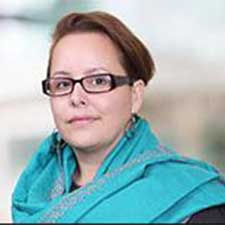Women’s economic empowerment and its interactions with social and personal empowerment
As reflected in the SDGs, women’s economic empowerment is considered a dominant path to achieving gender equality. However, women’s empowerment is multifaceted and includes personal and social empowerment as well. So, how do these other dimensions of women’s empowerment interact with economic empowerment? What is the theory of change that links personal, social, and economic empowerment, and how can it be leveraged to achieve meaningful change? Although women’s economic empowerment has received increased attention from policymakers in the last decade, progress remains frustratingly slow. Gaps in wages, education, autonomy, and social status remain.
More than 250 people joined the 3ie Evidence Dialogues webinar on 15 October to discuss the barriers blocking women’s economic, social, and personal empowerment, as well as promising approaches to overcoming them.
- Blog | Women’s empowerment requires more than just economic resources
- Download the presentation from the event
- Download the report | Impact evaluation of the National Rural Livelihoods Project
Highlights | Women’s economic empowerment and its interactions with social and personal empowerment
Listen in to the discussion
Q1: How have you been thinking about girls and women’s empowerment at the Bill & Melinda Gates Foundation?
Katherine Hay, Deputy Director, Gender Equality, Bill & Melinda Gates Foundation
Q2: What are the major challenges related to women’s empowerment that Hewlett Foundation is focused on, and what are the progress that has been made?
Sarah Iqbal, Program Officer, Global Development and Population, William and Flora Hewlett Foundation
Q3: How does the National Rural Livelihoods Mission relate to various aspects of women’s empowerment?
Bidisha Barooah, Senior Evaluation Specialist, 3ie
Q4: Could you tell us more about the research within the NRLM research agenda specifically on women’s empowerment?
Anjini Kochar, Senior Research Fellow, 3ie





